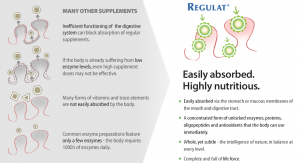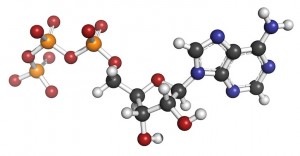Lyme disease was first identified in 1975 in Lyme, Conn., which gave it its name. In September 2015, the Centers for Disease Control (CDC) revised their estimates for people having Lyme disease, indicating that there are more than 329,000 new cases a year in the US – an increase of up to 10 times what was previously believed.
Unfortunately, many cases are not diagnosed properly and current diagnostics miss up to 60% of acute cases (ref. Bay Area Lyme Foundation – http://www.bayarealyme.org). 40% of Lyme patients end up with long-term health problems – the average patient sees 5 doctors over nearly 2 years before being diagnosed. (International Lyme and Associated Diseases Society – http://www.ilads.org). According to Dr. Mercola, “Sometimes the cell wall can collapse around the bacterium, forming a cloaking device that allows it to evade detection by many tests and by your body’s immune system.” For this reason, many fear that Lyme is actually a silent epidemic.
When one suffers from Lyme disease, the body’s immune system may be compromised to varying degrees. Although there is no consensus in the medical community on the use of anitibiotics to treat Lyme disease, many Lyme sufferers have a compromised immune system – and antibiotics are known to kill off the good bacteria required to support the intestinal immune system. Richard Horowitz, one of the most prominent “Lyme literate” physicians in the US, has seen more than twelve thousand patients, all of whom have a tick-borne ailment. Whenever possible, he avoids antibiotics. (http://www.newyorker.com/magazine/2013/07/01/the-lyme-wars)
Immunity Resides in the Gut
Approximately 70-80% of your immune tissue is located within your digestive system, and so-called killer T-cells (the white blood cells that defend against infection), are created in the intestinal system. So building the immune system is highly important for Lyme patients. One of the most beneficial ways to improve your gut bacteria is by incorporating fermented foods into your daily diet. Friendly gut flora found in fermented foods have been shown to survive the digestive process. So they are therefore able to introduce positive changes to the gut, allow it to function more efficiently and help the immune system do its job more effectively. 
Dr. Byron Braid, who has worked with Dr. Thomas Rau of the Paracelsus Clinic in Switzerland, has a ‘secret ingredient’ that helps build such intestinal efficiency and immunity – Regulat®!
Regulat® is a whole food preparation with broad-spectrum phytonutrients, produced by live Cascade Fermentation™. It began in Germany…70 years’ worth of scientific research on plant enzymes propelled the Munich company Dr. Niedermaier Pharma to world fame as the expert in the field of fermented health products.

 Nutrition is an important component of an athlete’s overall performance, before, during and after competition. By using nutrients the body absorbs through food consumption, we are able to obtain energy. Mitochondria are the ‘furnaces’, responsible for producing this energy. They are the powerhouses located within cells and convert glucose (a sugar molecule derived from carbohydrates) to adenosine triphosphate (ATP). Often called the “molecular unit of currency” of intracellular energy transfer*, ATP is a coenzyme that enables our cells to perform a spectrum of functions, and is the main source of energy that allows the body to generate movement.
Nutrition is an important component of an athlete’s overall performance, before, during and after competition. By using nutrients the body absorbs through food consumption, we are able to obtain energy. Mitochondria are the ‘furnaces’, responsible for producing this energy. They are the powerhouses located within cells and convert glucose (a sugar molecule derived from carbohydrates) to adenosine triphosphate (ATP). Often called the “molecular unit of currency” of intracellular energy transfer*, ATP is a coenzyme that enables our cells to perform a spectrum of functions, and is the main source of energy that allows the body to generate movement. Have you been wondering why having a glass of lemon water first thing in the morning is all the rage these days? The lemon is a powerful yellow ball packed full of Vitamin C that aids in digestion, detoxification, mood balance and energy. It’s also full of other important nutrients, such as potassium, magnesium, and copper.
Have you been wondering why having a glass of lemon water first thing in the morning is all the rage these days? The lemon is a powerful yellow ball packed full of Vitamin C that aids in digestion, detoxification, mood balance and energy. It’s also full of other important nutrients, such as potassium, magnesium, and copper. Two
Two 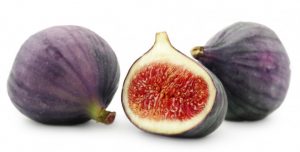 Figs are seasonal fruits originating from parts of Asia, however they are available year-round in dried form. They have a unique texture containing a soft, juicy center that is packed with seeds. They are a delicious fruit packed with minerals, vitamins and fiber, figs grow on small trees and are members of the mulberry family. Figs contain nutrients such as including vitamin A, vitamin B1, vitamin B2, calcium, iron, phosphorus, manganese, sodium, potassium, and chlorine.
Figs are seasonal fruits originating from parts of Asia, however they are available year-round in dried form. They have a unique texture containing a soft, juicy center that is packed with seeds. They are a delicious fruit packed with minerals, vitamins and fiber, figs grow on small trees and are members of the mulberry family. Figs contain nutrients such as including vitamin A, vitamin B1, vitamin B2, calcium, iron, phosphorus, manganese, sodium, potassium, and chlorine. For thousands of years people around the world have found that fermenting certain foods in a controlled way increases digestibility of the raw food and adds health-giving effects.
For thousands of years people around the world have found that fermenting certain foods in a controlled way increases digestibility of the raw food and adds health-giving effects.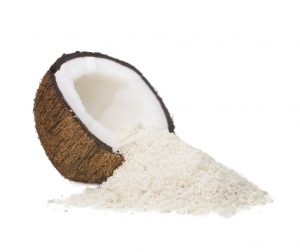 Coconut meat is revered for its high nutritional value. While most plants aren’t high in saturated fat, coconut is. The fat content is high in medium chain fatty acids, which help to lower bad cholesterol and increase good cholesterol levels.
Coconut meat is revered for its high nutritional value. While most plants aren’t high in saturated fat, coconut is. The fat content is high in medium chain fatty acids, which help to lower bad cholesterol and increase good cholesterol levels.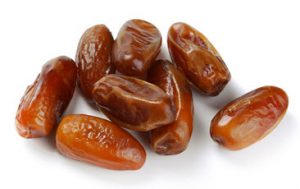 Dates are a great source of carbohydrates. While carbohydrates seem to have a bad reputation, it’s important to remember they are an essential macronutrient that your body needs for energy. By making wise nutritional choices, such as with dates, to fill your nutritional needs, you’re helping to maximize your body’s functioning.
Dates are a great source of carbohydrates. While carbohydrates seem to have a bad reputation, it’s important to remember they are an essential macronutrient that your body needs for energy. By making wise nutritional choices, such as with dates, to fill your nutritional needs, you’re helping to maximize your body’s functioning.
